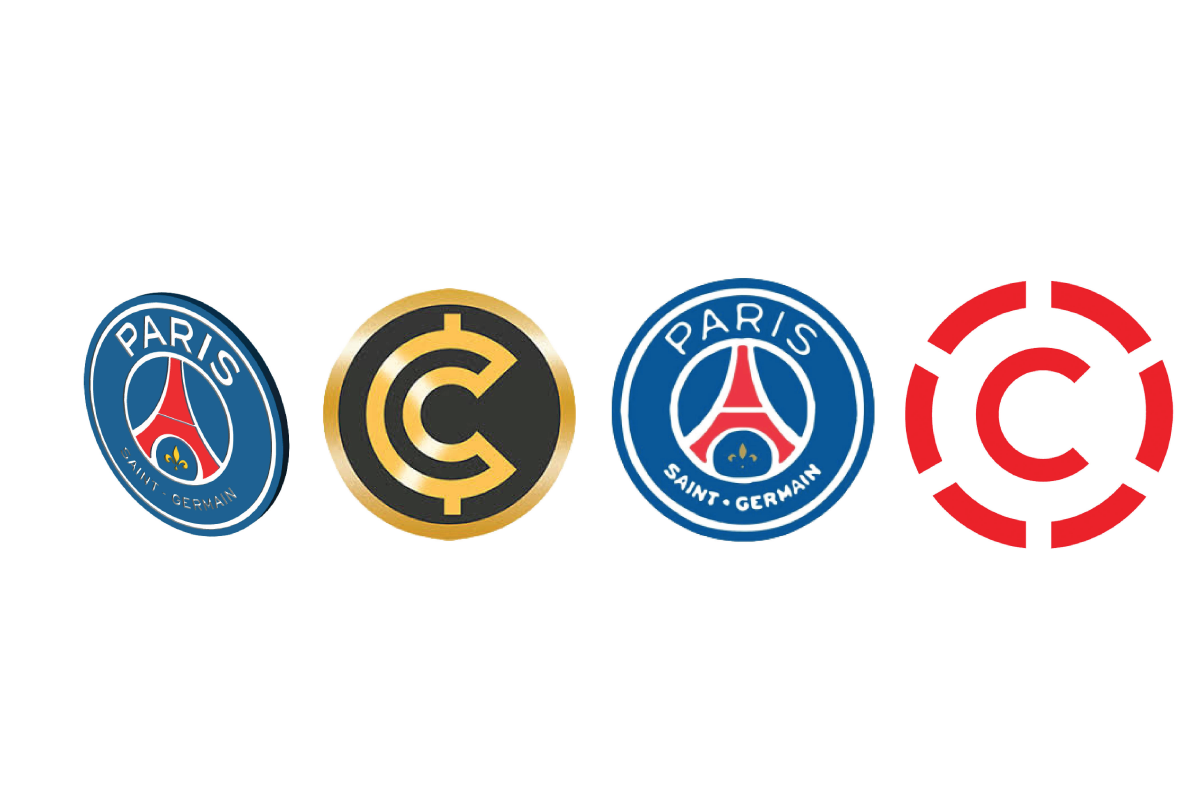I. Introduction
Virtual currencies have recently captured the attention of every government, prominent software company, bank and financial institution. The concept of digital currencies such as Bitcoin has generated sudden curiosity in recent years, even to those who do not know about the potential benefits they have to offer. Virtual currencies are based on blockchain technology, which works as a peer-to-peer network, which means that every digital cash transaction made between two individuals is registered in a decentralised ledger, independent from interference by intermediaries such as governments, banks or financial institutions.
The whole operational system is completely visible to all members of the ledger, in fact every member of the blockchain network has an up-to date copy of it. In order to verify and ensure a secure transactions history, blockchain technology draws on encrypted codes assigned to each transaction making them impossible to be duplicated, double-spent or counterfeited by an individual without the whole ledger’s consent.
II. ANALYSIS OF THE IMPLEMENTATION OF BLOCKCHAIN TECHNOLOGY IN FOOTBALL PIONEERING CASES
Over the last few years, the football industry has embraced new technologies with the purpose of improving the game in the spirit of competition. For example, FIFA decided to introduce the Video Assistant Referees (VAR) at professional football competitions in the first place. However there’s a new player on the technology market in football: Blockchain Technology.
Football clubs, have been looking for innovative ways to engage fans and sponsors while adhering with UEFA’s Financial Fair Play rules.Over the past few years, football supporters have become mere spectators. The Football industry, unconsciously, had assigned them a passive and neutral role whereby they couldn’t be part or even been heard in any of their beloved clubs’ activities or decisions directly. The only way they could express their thoughts or feelings was through social media, mainly Twitter and Facebook. Football Clubs have been wondering how they can monetise their fans and attract more sponsors. Perhaps technology can increase operational efficiency which in turn means more profits for clubs? Perhaps surprisingly, Blockchain technology has been identified as an effective and suitable measure.

1. FAN ENGAGEMENT. PARIS SAINT-GERMAIN AND JUVENTUS FOOTBALL CLUB CASES
Paris Saint-Germain (PSG) and Juventus Football Club (Juventus) were the first two big football clubs who dared to lead the path by implanting the most pioneering Blockchain initiatives within the football system. As a matter of fact, both clubs recently closed a partnership deal with Socios.com. Arsenal Football Club became the first team in the Premier League to engage with Blockchain with CashBet Coin, an American gambling cryptocurrency company that was named its exclusive and official Blockchain partner. (Express, City & Business News; 2018). Moreover, FansUnite, a firm focused on the sports betting and data has already signed to become an official sponsor of Leicester City FC (Celeste Skinner; 2018). What is even more surprising, a Spanish women football club called “Club Deportivo Tacón”, seated in Madrid, is about to launch the TaCoin as a result of the association with the American firm Grant Thornton. (Iusport; 2018).
On September 2018, both PSG and Juventus announced their partnership agreement with Socios.com, a Blockchain platform that allows for launching their own club-branded token. By doing so, increasing supporters’ engagement through the activation of a Mobile App while offering teams a chance to monetise their fanbase by enabling them to build their own brand and engage their audience in a meaningful way. (Cision PR Newswire; 2018).
Given that Socios.com describes itself as an online voting website, fans would be granted the right to vote on some decisions of the club by purchasing tokens. Nevertheless, this right does not include institutional nor corporate decisions, not even those related to transfers of players. These tokens, planning to be launched in 2019, will entitle fans to participate in polls linked to team’s jerseys, the stadium anthem and logos. This would also include decisions related to sporting aspects, such as Man of the Match, summer tours, friendly matches and charity line-ups.
Accordingly, fans would be able to give their feedback and make remarks about their team performance on the field. Despite all entitlements, some people would think that this fan’s feedback could be managed as it is nowadays, via social media. The implementation of such Blockchain system could be easily avoidable. However, fans’ feedback goes beyond the fact of letting the club know what they think. On one hand, this specific Blockchain platform is particularly designed for encouraging and improving fans’ engagement in clubs’ operations, activities and developments. Consequently, by sharing their opinion and participating in pools launched by the club through the app, fans would be able to gather points, gain discounts for tickets and even have access to rewards or exclusive football experiences. The system will build an entire database gathering all personal information providing fans with a private profile. Logging in will be necessary to have access to your personal account. Thus, fans would find enclosed in their personal account things as follows: the total of points they had already gained, loyalty discounts and tickets just bought for the next game, among others. (Anatol Antonovici; 2018).
Football clubs would be able to track back and collect extremely useful information provided by the fans through this app. Since club-branded tokens could involve tickets, merchandise and certain services provided at the stadium, this database will allow clubs to recognize which activities or services their fans like so they could better focus their business strategy and the way they engage their fan base.
Beyond this, there is another reason why the blockchain initiative is potentially capable of revolutionizing the powerful asset of fans. It is important to emphasize the fact that every club’s fanbase, besides representing those supporters who go to the stadium every week, include those living abroad. Those who might never get the chance to experience a home fixture live but still feel the same passion for their beloved football club and its colours. Through this app, fans from all over the world would get access to the same exclusive content as the ones who have the privilege to see their team playing on the field every week. As a result, football clubs get to enrich their fan experience. Clubs such as PSG, with more than 300 million supporters, and Juventus with more than 340 million supporters, both worldwide, could engage a wider audience by enhancing their fans commitment globally and grow into emerging markets, such as Asia and North America (Sport Industry Group; 2018).
Marc Armstrong, head of sponsorships at PSG, stated that “They (Socios.com) will work with us across multiple areas, securing data, tracking financial transactions and all the things involved through blockchain,”. He also affirmed that “Ultimately any club is about providing a better experience for their fans and creating new fans and more fans. If you do that, ultimately you will make more money as a business.” (Nicholas Earl; 2018).

1.1. CLUB-BRANDED TOKENS DO NOT REPRESENT SHARES OF THE CLUB: DIFFERENCES BETWEEN AN INITIAL COIN OFFERING AND AN INITIAL PUBLIC OFFERING
These tokens do not represent the right to vote on institutional nor corporate decisions, not even those related to transfers of players decisions; meaning that fan tokens do not represent ownership, part ownership equity or shares in football clubs. The purpose of this strategy is not to “tokenise the club’s existing corporate structure, but to focus on incentivising and monetising fan engagement and experiences via crypto” (Marie Huillet; 2018). Club-branded tokens will be created and distributed among fans through an Initial Coin Offering (ICO). Socios.com’s blockchain platform refers to it as Fan Token Offering (FTO). An FTO is like an Initial Public Offering (IPO) for stocks, with critical distinctions.
Specially, an ICO is launched when a company is looking to create a new coin, app or service, similarly to crowdfunding. So, in case of PSG and Juventus, Socios.com plans to launch the clubs’ own cryptocurrency (FTO) through a mobile and desktop app developed specially for this matter. Interested supporters will be able to buy tokens as a form of services and rights.
“The fan tokens will be tradable on the socios.com marketplace only. On the contrary, although the FTO will take place before the start of 2019-2020 season, there is no disclosure on the exact date these tokens will be released neither whether supporters would be able to pay these tokens with fiat currency6 or digital currency, such as Ethereum or Bitcoin” (LT PULSO; 2018).
While IPOs deal with investors who are interested in buying shares of a company; ICOs, in this case “FTOs”, deal with supporters who are keen on getting a new cryptocurrency with voting rights that might confer a Fan ‘VIP Status’ by granting rewards to their holders. It is worth mentioning that, when an FTO is launched, a company’s structure is not affected or modified at all. On the contrary, once the IPO is launched, the company’s social capital turns public and at least a portion of its shares are traded on a stock market. The club holding the FTO uses fans’ funds as a new asset, but nothing to do with raising the company’s capital.
It is worth mentioning that ICOs appear to offer much more freedom than IPOs in terms of structure, considering that ICOs are decentralised, and no single authority would govern them. However, ICOs are starting to capture the attention of governments and public institutions due to the high values that could be traded within the network and since different business sectors are using cryptocurrencies to manage their operations. It appears to be a sphere where governments lose control over the money and taxes that supposedly should be accrued. Therefore, governments such as China and South Korea have declared ICOs illegal due to the risk of funding criminal activities.
In Europe, for instance, ICOs are allowed although subjected to regulations. Earlier this year, the European Union created the International Association for Trusted Blockchain Applications (INATBA) with the purpose of offering developers and users of Distributed Ledger Technology (DLT) a global forum to interact with regulators and policy makers. Considering that it would be extremely difficult to regulate the whole crypto market, the primary idea is to impose more transparency on the information disclosed and to determine security standards and protections towards the individuals involved. All of that would lead to a legalisation of startups to raise funds using tokens and trade in the EU.
For instance, in some places such as Russia and Singapore, ICOs are legally allowed but tied to heavy regulations. In the United States, even though there are no current regulations banning ICOs specifically, they have to be registered with the U.S. Securities and Exchange Commission (SEC). As a matter of heavy regulations, last year, the SEC announced that would impose civil penalties against two cryptocurrency companies that didn’t register their initial coin offerings as securities (Samuel Potter & Todd White; 2018).

2. PARTNERSHIPS
Certainly, the decentralised nature of Blockchain would help facilitate and encourage multiple partnerships. Sponsors can connect with fans in a more direct way engaging and enter a whole new market. This asset might be more valuable than advertisements at stadiums or being the official sponsor of the team’s shirt.
Clients are the most important and valuable thing at a company, brand, club or any business. However, this is about quality more than quantity. Databases are unlimited and the more information gathered about clients, the more detailed and effective marketing strategies can be designed. For this purpose, social media is extremely important as you can gather information but it would also be appropriate to get a complete record of clients. It would be interesting to know where they are from, the last purchases they made, their hobbies, their jobs, etc. This way, more targeted campaigns could be launched to engage fans in club’s activities. The more information gathered about the fans, the more value the club has to attract sponsors. A new partner is always looking to enter new markets. This means, a football club that knows its fans’ hobbies and priorities with a complete and a developed fanbase would be extremely appealing for a company looking to push a particular product.
By closing a partnership deal with a club, sponsors could offer special discounts and promotions right away to the fans through the club’s app and grant gifts to those who attend games or events organized by the club. Additionally, fans could have direct access to the sponsor’s website. In this way, sponsors could build a more personal relationship with supporters, being able to reach not only those who go to the stadium every week, but also those who are supporting the team from the distance. In fact, sponsors could reach fans worldwide.
When offering this asset to a new sponsor, clubs must be aware of the legal scope of the European General Data Protection Regulation, (hereinafter, GDPR) which is a set of data protection rules for all European customers, regardless of where the company is seated. The new EU Regulation came into force in November 25, 2018 granting users stronger rights, allowing consumers to have control over their personal data given to any company and asking for pecuniary compensation in case rules are broken. Pursuant to this regulation, the main objective of this regulation is that users become aware of who manages their personal data and how.
The GDPR specifically alludes to the principle of transparency within the scope of Article 15, which refers to the right of users to be informed in case of any transactions of its personal data made to a third party and even in case they will be used for a different purpose. Additionally, users have the right to access and get a copy of their data managed by the business in question. Article 19 also states that whoever oversees the management of data shall inform the user every single time a rectification, elimination or limitation occurs.
More control and consent is conferred to users over their personal data through the right to be forgotten and data deleted for breach pursuant to Article 17. Furthermore, this control is reflected by virtue of Articles 16 and 18 of the GDPR. According to Article 16, users have the right to alter their data in case if incomplete; secondly, pursuant to Article 18, data can only be used for the purpose for which it is gathered. Besides that, Article 33 and 34 of the GDPR provide that businesses making use of the respective data shall inform the competent control authority and users without delay in case of any data breach.
A database cannot be transferred, sold or rented unless every GDPR requirement has been fulfilled. According to Article 6 GDPR, users must give their affirmative and express consent before their data could be used, understanding silence as non-consent. Clubs should not presume implied consent from their supporters to receive advertisements or publicity from any sponsor. Clubs should ask for every fan’s express consent in order to be legally allowed to deliver any kind of publicity to them. Let’s say a club has a database of 15,000 supporters and closes a partnership deal with a gas company. The gas company cannot, under any circumstances, address to the club’s supporters delivering any kind of promotion or advertising. Clubs become the intermediary between the sponsor and the fans through the corresponding app. In order to do that, must be the club who should contact its database informing them of the partnership agreement with the gas company through which they can get a special promotion.

3. TICKETING
Sport clubs and organisations can also benefit from new technologies by implementing more secure and transparent ticket exchange markets. In this sense, UEFA has already established a new ticketing system that relies on blockchain technology, to battle ticket scalping and counterfeiting arising from an uncontrolled secondary market of tickets. UEFA has already demonstrated twice that it is possible not only to prevent ticket touting and reduce forgeries from malicious fans, but also get to simplify the ticketing process. Instances of these systems being integrated are firstly at the 2018 Europa League final in Lyon between Atlético de Madrid and Marseille, where the system was used to effectively distribute at least 50% of the tickets available to the general public. Secondly, the system was used in the 2018 Super Cup football match between Real Madrid and Atletico de Madrid that took place in Tallinn (Estonia) on 15th August. In this last event, UEFA managed to use a blockchain-based on iOS and an Android application to arrange the campaign tickets’ distribution (Max Yakubowski; 2018).
A mobile ticketing system based on Blockchain Technology will ensure transparency and security for clubs and fans. First, it allows clubs and organisations to follow every single ticket released to the public. It also allows clubs to know if any ticket has exchanged hands and at what price. A complete database of the whole ticketing system can be built, where every single ticket can be identified and tracked as an encrypted barcode within the ledger. Furthermore, the mobile ticketing system requires the buyer to personally register in the platform, so each user will be linked to the only one ticket. Transactions are secure and cannot be changed once confirmed within the Blockchain ledger meaning any chance of reproduction, duplication or scalping of tickets from malicious fans is eliminated.
Fans can also trust that they are purchasing a legitimate entry ticket for the original price. As a result, if misbehaving fans want to resell their tickets or sell a fake one, the transaction would be immediately cut down by the other members of the ledger. This control over the secondary market could also be improved with the incorporation of some rules. As Michael Waterson, an economics professor at Warwick University, contemplated “if the owner cannot attend, they must transfer the ticket back to the original seller for redistribution or for on-sale at no more than a particular price” (Ticketing Business News; 2018). This would ensure the maximum control over the recirculation of tickets to new buyers.
Ticket counterfeiting can jeopardise safety at an event’s facilities. During the 2007 UEFA Champions League final between Liverpool and AC Milan there was intense overcrowding because of the distribution of forged tickets. Hundreds of fans who had legitimate and valid tickets for the game weren’t allowed to get into the stadium which was already full of fans with fake tickets. This exasperation led fans to find a way around the police cordons and go over the barriers to get into the stadium. It could have been a complete disaster since officers were carrying riot shields and tear gas was fired (EveningStandard.com; 2007).
It should be pointed out that Ticketmaster, known as the global leader company in ticketing software and services, operating in 29 countries and processing the sale of over 500 million tickets per year has just acquired, in October 2018, the Blockchain Technology firm Upgraded. Justin Burleigh, chief product officer at Ticketmaster North America stated that “Upgraded leverages Blockchain to maximise trust for ticket holders, give control and flexibility to content owners, and data to teams and performers[…]We think blockchain and Upgraded will continue our progress to improve ticketing and create a safer and more seamless experience” (Ticketing Business News; 2018).

III. USING BITCOIN AS PAYMENT IN FOOTBALL
Bitcoin has recently been accepted as a method of payment in certain football cases. Cryptocurrency has been used for purchasing tickets, paying players’ salaries and even the amount of a transfer fee. The three most pioneering and landmark cases are briefly explained below:
Firstly, as it has been stated before, UEFA used Blockchain Technology for the sale and distribution of tickets. However, FIFA took a step forward on tickets’ sales for the 2018 FIFA World Cup Russia. Even though there was no official way to buy tickets through cryptocurrencies, the purchase could have been managed through two companies that were providing international payment services, both viable in Russia and specifically mentioned at FIFA’s website as a choice of payment. On one hand, Wirex, as a FIFA sponsor, offered prepaid visa credit cards able to support cryptocurrency as Bitcoin. On the other hand, Epayments, an app where you could get your own digital wallet, offered Master Cards in which you could save your Bitcoins. Both allowed fans to purchase tickets for the game, providing a digital wallet that was created within one of the tools (Bitcoin Exchange Guide News Team; 2018).
Secondly, Gibraltar United Football Club partially paid their players’ salary in cryptocurrency after closing a partnership deal with cryptocurrency platform Quantocoin. This initiative had an easy implementation due to the entry into force of the new regulations established by the government of Gibraltar for business using Blockchain Technology allowing ICOs. Moreover, crypto payments avoid all those difficulties that foreign players face in establishing bank accounts since digital wallets operate worldwide (Rick D. ; 2018) Besides, Quantocoin also owns 25% of the Italian Serie C football club Rimini FC 1912, which became the first football club to be purchased by cryptocurrency.
Last but not least, Turkish Amateur club Harunustapor bought a player, Omar Faruk Kiroglu through cryptocurrency in January 2018. Harunustaport paid around £385 worth of Bitcoin, plus 4,500 lira (£470) for the player (BBC Sport News; 2018).

IV. CONCLUSIONS
Blockchain Technology is revolutionising all kind of business sectors including football. The reality is that this innovative technology could turn football into a more profitable and transparent sector.
Fans are the most remarkable target of this technology as part of the numerous assets that belong to a football club. What it is even more attractive is the entire picture that Blockchain creates; the closer connection between clubs and their fanbase worldwide. This connection can capture the interest of new partners that eventually lead to higher profits for clubs. This is what football clubs are mainly looking for: funding (while taking into consideration the legal limitations pursuant to the European General Data Protection Regulation.)
Nevertheless, in order to enhance and encourage loyal fans to engage in their activities and with the purpose to potentially expand their audience to new markets, football clubs should offer valuable services. The purchase of a club-branded token might be more appealing to a supporter who lives overseas and never has the chance to go to the stadium. Clubs are trying to break down barriers between them and their fans on other continents instead making them feel important and involved.
Blockchain mostly deals with transparency, security and trust issues. Those three aspects should be the qualities by which a ticketing system should is defined. Blockchain technology secures transactions within a ledger that cannot be changed once a transaction is confirmed, which will enrich the fan experience.
In addition, the detailed and extensive database that blockchain technology can create can become a source of revenues for clubs through ticket sales. This storage of data, allowing transaction tracking allows clubs to recognise potential new fans. Current methods mean its impossible to know if a person is using his friends or family’s season ticket to entry to the stadium, so at the end of the day clubs do not know who is attending the games with certainty. Considering this innovative platform records every transaction and requires personal registration to get a ticket, either at the first sale or second re-sale, clubs can firstly verify who is coming to the stadium; and secondly design more focused marketing strategies targeting these sporadic spectators.
From my personal perspective, blockchain technology can effectively improve current methods followed by football clubs and sports institutions on fan engagement, partnerships and ticketing. Notwithstanding its several advantages, regarding cryptocurrency payments within the football system, there is still an unstable background. The volatile value of Bitcoin and, specially, the general lack of regulation that surrounds the entire crypto market make me think that Bitcoin has to be developed further in terms of structure and legitimacy, before it becomes normalised. Even so, a football system based on cryptocurrency and blockchain technology would lead to more transparent relationships between sports institutions, clubs, players and fans. Corruption would be all but erased or at least reduced. Although the theory sounds impressive, there are still many steps forward to take concerning the treatment of cryptocurrencies. Meanwhile, let’s just focus on hoping that club-branded tokens are as profitable as they promise to be, taking the first step towards the next technologic generation of football.


Great article, love the way you have talked about – Blockchain and its Benefits for Football clubs. If you want to have a detailed information about blockchain, its applications and its use, do read – https://www.eccouncil.org/what-is-blockchain-technology-and-how-does-it-work/
LikeLike